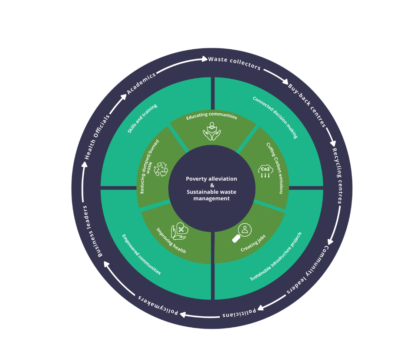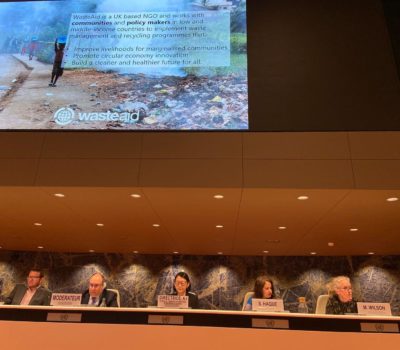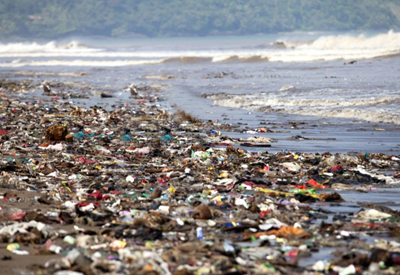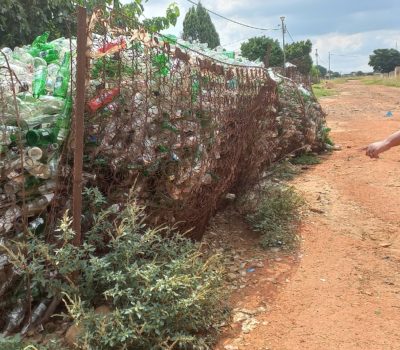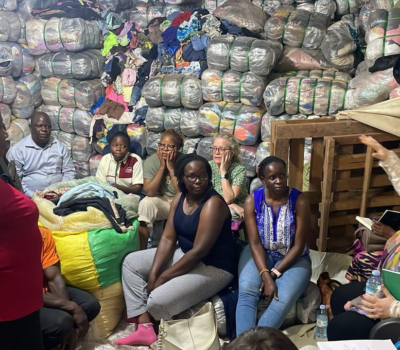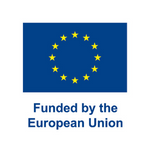Circular Innovation Hub: Moving Women Waste Pickers in Ghana from Collectors to Small Scale Recyclers
Thought Pieces
Author: Guest Author
Published: 27 June 2022
In Ghana, waste segregation is the job of informal waste collectors, as is the case for most lower- to middle-income countries. Founder and Executive Director of Environment360, Cordie Aziz, shares how the Circular Innovation Hub seeks to strengthen the plastics value chain by developing a market for local recycled plastics and improving the livelihoods of local women waste workers.
The need for circular innovation in Ghana
WHO estimates that each year in Ghana, 4.8 million tonnes of waste is generated. Local municipalities note that 20% of this figure is plastic waste. However, the United Nation’s COMTRADE has found that Ghana’s import of plastics and articles was worth a total of $499.85 million during 2019. Meanwhile, the Ghana Environmental Protection Agency has acknowledged that 97% of imported plastic ends up as waste, and a report from the Ghana Plastic Action Partnership notes that plastic recycling rates in the country are only at 5%.
In Ghana, like most developing countries, waste segregation is the job informal waste collectors, also known as waste pickers. WIEGO has noted that in the capital of Ghana, Accra, there are between 3,000-5,000 waste pickers. A recent study published by the World Economic Forum has acknowledged that women make up the majority of community waste pickers. Despite their collection efforts and knowledge, very few have the ability to move up the economic chain; lack of access to technology, transportation and finance are among the top reasons women waste pickers are stuck at the bottom of the value chain.
Launching the Circular Innovation Hub in Ghana
In September 2021, Environment360, with funding from the Australian Direct Aid Programme, launched the Circular Innovation Hub in Dodowa (a town in the Greater Accra Region of Ghana). The Circular Innovation Hub seeks to strengthen the plastic value chain by developing a market for local recycled plastics, while also taking women waste pickers from collectors to small scale recyclers.
To achieve this goal, the Circular Innovation Hub identifies local businesses and works with them to determine products within their value chain that can be made with recycled plastics. Businesses that partner with the hub are committed to creating and prototyping a product that moves directly into their product line, once all tests are successfully conducted.
In addition to partnering with local businesses, the Circular Innovation Hub identifies and trains women waste pickers to manufacture the products created for the local businesses. It does this in three steps. The first step is an “Empower Up n Around” training programme that helps women defy traditional gender roles and teaches them basic design principles. After graduating from this section, women enter a one-year “Tech-Know” training programme, which teaches them how to operate and service a modular recycling technology. Upon successful completion of the “Tech-Know” programme, women are given the opportunity to own their own modular open source recycling technology and create products for the companies that the hub has an existing relationship with.
The Circular Innovation Hub graduated its first seven women from the “Empower Up N Around” training on 16 September, 2021. The class worked with a Kumasi-based company, Bamboo Bikes, to design the grips of handlebars. The chosen handlebar design will move into field testing in October.
Ultimately, the hub seeks to train and move 100 women waste pickers into machine ownership over the next five years. It is projected that more than 60 tonnes of plastic will be recycled into products for local businesses in Ghana and 1,000 jobs created.
This project is an important first step to achieving circularity in the Ghana market and reducing the amount of plastic that is imported into the country, while also increasing recycling rates. The Circular Innovation Hub is also one of the few technology-driven solutions being implemented in Ghana to help address the plastic waste issue. The modular design of the machine makes it easily adaptable in both rural and urban communities, and the ability to create new products for the market is never-ending. It is envisioned that this project will be easily replicated amongst all African countries and can help spur the green economy and make plastic collection more attractive to youth as a viable employment opportunity.
To find out more about the Circular innovation Hub, visit the Environment360 website or email info@environment360gh.org.
About the author
Cordie Aziz founded Environment360 in December of 2014, to support the creation of circular economies that have economic and environmental impact. During the past six years, she has become an expert in supporting informal sector plastic waste collectors, also known as waste pickers. Ms. Aziz was a pivotal force in the creation of the Ghana Recycling Initiative by Private Enterprise (GRIPE). She is one of the original founders of the Plastic Recyclers and Aggregators Association of Ghana (PRAAG); she served as President of the organisation until June 2021. She is passionate about working with all stakeholders along the value chain to create an inclusive waste management system that create jobs for youth and women. In the organisation’s newest venture, the Circular Innovation Hub, Ms. Aziz seeks to move women waste pickers from collectors to innovators using an open source modular recycling technology.

